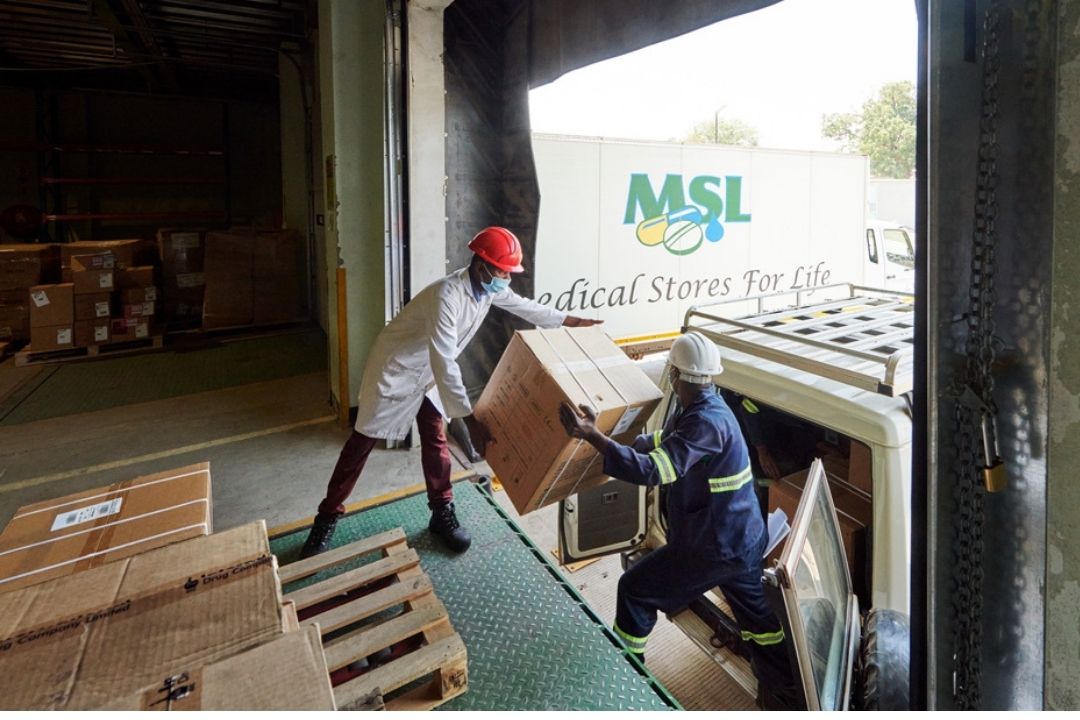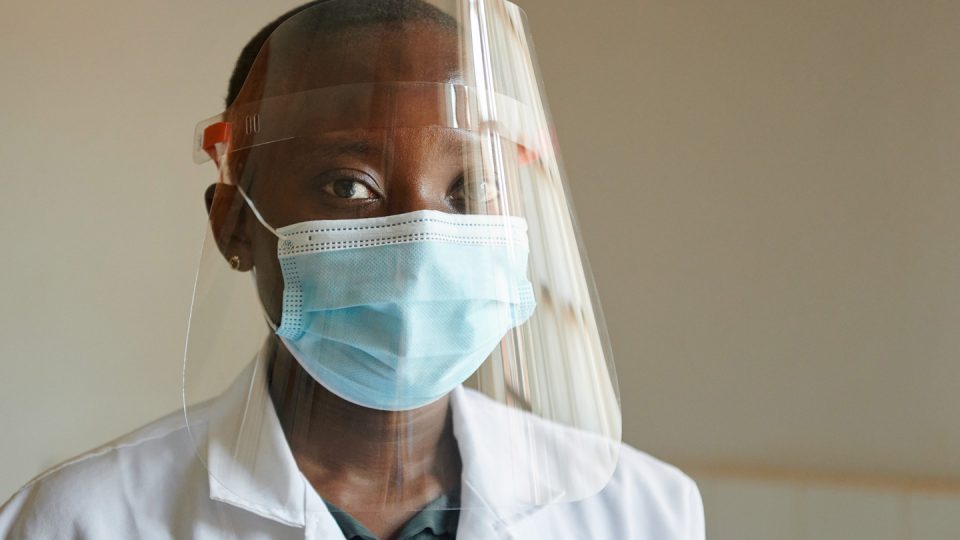At a sprawling warehouse in Lusaka, a truck is loaded with boxes of lifesaving antiretrovirals and begins a two-hour drive west out of Zambia’s capital city. It’s on its way to a rural health clinic in Mwembeshi, and today there are additions to its usual cargo: boxes of face masks and face shields from Apple to help in the fight against COVID-19.
This year, COVID-19 drastically changed the landscape of healthcare, and the Global Fund, which coordinates these shipments to help fight AIDS, tuberculosis, and malaria, had to react quickly to respond to this second pandemic.
Global Fund programmes so that people receiving lifesaving treatments
It established the COVID-19 Response Mechanism, which is adapting existing Global Fund programmes so that people receiving lifesaving treatments, including lifelong antiretroviral therapy, can continue to do so safely.
Apple and its customers have raised almost $250 million toward the Global Fund’s efforts in sub-Saharan Africa.
Apple began working with (RED) in 2006 and has launched dozens of products and accessories through the campaign, including the latest iPhone 12 and iPhone SE (PRODUCT)RED models. As a result of those sales, Apple and its customers have raised almost $250 million toward the Global Fund’s efforts in sub-Saharan Africa.

Apple sourced from its supply chain
As COVID-19 spread across the world, Apple redirected (PRODUCT)RED proceeds toward the Response Mechanism and will continue to do so until June 30, 2021. Apple also donated millions of units of personal protective equipment (PPE) to the Ministry of Health in Zambia. That includes both surgical face masks as well as face shields designed and produced by Apple
The truck ladened with antiretrovirals and Apple PPE has arrived.
Back at the Mwembeshi Rural Health Centre, the truck ladened with antiretrovirals and Apple PPE has arrived, and is met by staff including Prosperina Mwanza, who runs the clinic.
“This provision of PPE will go a long way in cutting the transmission of infections,” says Mwanza, who has seen COVID-19 severely impact her clinic, especially for the HIV patients receiving antiretroviral treatment. “The biggest challenge right now is that people stopped coming for follow-ups because they felt they would interact with people that had COVID-19”.
It’s a challenge that medical professionals are facing across Zambia and sub-Saharan Africa. Yoram Siame is head of Advocacy, Planning, and Development with the Churches Health Association of Zambia (CHAZ), the largest nongovernmental health provider in the country.
“People are now afraid to go to health facilities,” says Siame. “This is a very big issue for people living with HIV because when you talk about COVID-19, it disproportionately kills people with preexisting conditions. So how do you ensure that people on lifelong treatment are supported?
At the same time, how do they come to a health facility with an assurance that they are safe? So it’s a bit of a difficult balancing act.”
The Global Fund answered by adapting its health services to secure rapid quality COVID-19 testing and diagnostic equipment, scale up treatment delivery to local communities, and provide health-safety education tools for community health workers.
“The Global Fund has been a game changer,” says Siame. “We were able to repurpose some of the money for personal protective gear for health workers, we ramped up our [COVID-19] testing capacity, and we were able to respond at a community level to make people understand what COVID-19 meant for them and their families.”
Thirty miles east of Mwembeshi, Cardinal Adam Memorial Hospital received its first shipment of Apple PPE a few weeks ago. Samson Tembo is a retired military officer who has been the hospital’s HIV programme coordinator for the past two years.
“The PPE is very important because physically it helps protect workers and mentally it helps us do our jobs freely,” says Tembo.
As the COVID-19 pandemic progressed, he was forced to adapt his treatment plans because many of his patients were staying home.

“We had to give drugs to patients for longer periods of time than usual so that people didn’t have to come to the facility as often,” says Tembo. “Because of that, we do not know whether they are taking the drugs correctly in terms of adherence.
“I would be worried if I stopped the medication,”
As a clinician, I need to know how they are doing out there, so if I don’t see them regularly, it becomes a bit of a problem.”
Wilson Kalunga, who tested positive for HIV five years ago, is one of the million Zambians who receive daily antiretrovirals (ARVs) through the Global Fund to manage the virus and prevent it from developing into AIDS. A patient of Tembo’s, he hasn’t let COVID-19 stop his visits to the hospital.
“I would be worried if I stopped the medication,” says Kalunga. “That is my reason for coming, because I know I have to take the ARVs forever — if I stop, I might contract other diseases.”
Zambia has seen significant progress in the fight against HIV/AIDS over the last two decades. In 2003, 61,000 Zambians were dying from AIDS-related illnesses every year.
Because of the work of the Global Fund, in partnership with the government of Zambia and healthcare providers, AIDS-related deaths have declined by over 70 percent and new infections have been cut in half since their peak.
The Global Fund also supports a larger goal that’s spearheaded by the United Nations: End the AIDS epidemic by 2030.
“In 10 years, I have no doubt that AIDS will become an issue in the history books, as long as we keep the lid on issues of misinformation,” says Siame of CHAZ..
“With disrupters like COVID-19, we know that we will still have to do a lot of work to ensure that we get to that point. But I think COVID-19 has been proof of the [Global Fund’s] capacity to adapt to changing circumstances.”
Tembo of Cardinal Adam Memorial Hospital is hopeful that the additional measures coordinated by the Global Fund, including the shipments of Apple PPE, will help his patients feel secure enough to return for their regular treatments.
“Our patients will benefit because when they come to the facility, they know that they are protected as well,” he says.
Kalunga, Tembo’s patient, agrees, and has words of advice to other members of the community who may be nervous to come in for treatment.
“I go to the clinic; I haven’t gotten COVID-19. So, let them also follow my suit.”.
